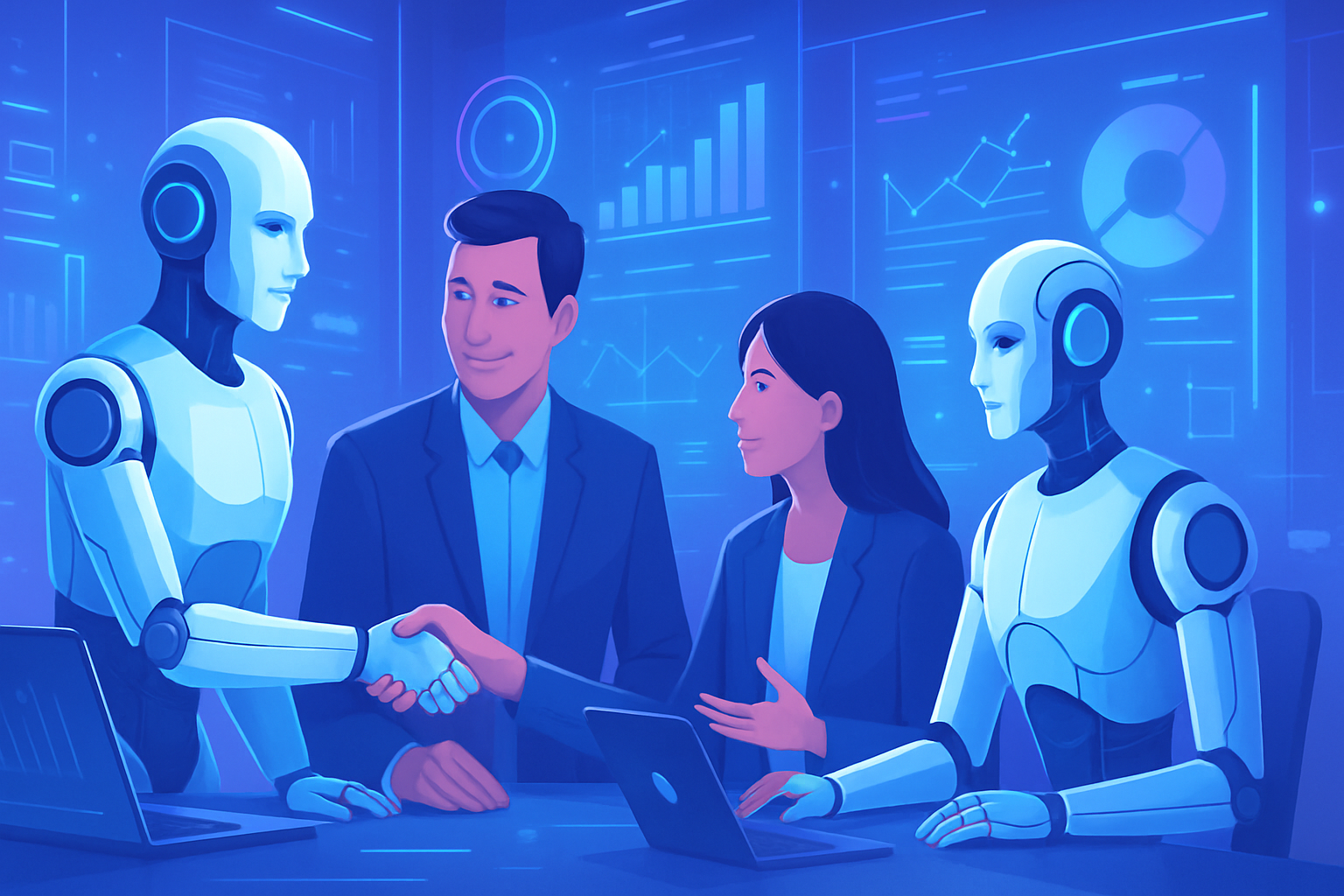H harmonious collaboration between humans and AI is essential. Adecco embodies this new dynamic by integrating digital agents to support and enhance employee work. A strategic transformation is emerging, combining efficiency and innovation to redefine the professional landscape. The future of work relies on artificial intelligence, but requires an ethical and transparent approach to foster successful coexistence within organizations.
Transformation through AI at Adecco
Adecco is committed to the future with a clear vision: to establish a harmonious collaboration between artificial intelligence and human employees. Pierre Matuchet, SVP IT & digital transformation, emphasizes that agentic AI represents a tool for enhancement rather than substitution. Thanks to this approach, the automation of repetitive tasks allows employees to focus their efforts on more strategic and rewarding missions.
Candidate prequalification via AI
The deployment of agents within Adecco particularly affects the prequalification phase of job candidates. This critical process in recruitment is now optimized by AI. AI agents generate a set of questions that recruiters can validate before submitting them to candidates. This system facilitates a better alignment of applications with the desired profile, taking into account the availability and mobility of candidates.
An innovative joint venture with Salesforce
As part of its partnership with Salesforce, Adecco has launched a joint venture called r.Potential. This initiative aims to advise business leaders on the best distribution of tasks between workers and digital agents. Pierre Matuchet insists that real-time management is essential, especially during peak periods of activity, mergers and acquisitions, or reorganizations.
The key role of the HR function
The human resources (HR) function is entrusted with a fundamental role in the integration of AI agents. HR teams must not only evaluate the social impacts of this transformation but also anticipate changes by deploying appropriate training actions. In fact, positions most likely to be automated must receive special attention to ensure continuity and employee development.
Education as a lever for acceptance
To ease employee fears about AI, training programs are necessary. Caroline Monfrais, Global Managing Partner at Wipro Consulting, advocates a pedagogical approach. The goal is to clearly explain the strengths and limitations of agentic AI. By highlighting the daily use of these tools, she aims to reassure and enhance employee understanding.
An ethical and responsible AI
The development of AI agents by Adecco is based on solid ethical foundations. The company has established an ethics committee dedicated to AI, ensuring that each project complies with current regulations, such as the AI Act. Transparency must prevail, with employees being informed that they are collaborating with automated systems. It is crucial to avoid the “black box” effect by ensuring that the operation of AI agents is traceable and explainable.
A collaborative approach for the future
Just like factory workers, office employees must learn to work in synergy with software robots. The integration of agentic AI into daily professional life raises questions. Employees, often worried about their jobs, must recognize the benefits they gain from this collaboration. By handling repetitive tasks, AI allows workers to be more focused and motivated.
Key aspects such as performance management or employee onboarding processes, agentic AI disrupts usual practices. Platforms such as Workday or Cornerstone offer advanced solutions for these challenges, marking a revolution in the world of work. Adecco serves as a tangible example of the evolution towards a business model where human and artificial intelligence effectively complement each other.
Frequently Asked Questions about Adecco’s Vision: Harmonizing collaboration between artificial intelligence and human employees
How does Adecco envision the integration of AI in the workplace?
Adecco sees AI as a tool for enhancing human capabilities, allowing employees to be relieved of repetitive tasks, enabling them to focus on higher value-added activities.
What are the main advantages of collaboration between AI and human employees at Adecco?
This collaboration improves productivity, optimizes the recruitment process, and provides a better user experience for both employees and candidates.
Who is responsible for the management of AI agents within Adecco?
The responsibility for managing AI agents lies with a dedicated team within the company, ensuring appropriate oversight and alignment of the agents’ objectives with those of human collaborators.
How does Adecco ensure ethics in the use of AI?
Adecco has established an ethics committee dedicated to AI to oversee the use of technologies, thereby ensuring compliance with ethical, legal, and deontological standards.
What types of tasks are generally automated by AI agents at Adecco?
AI agents are used to automate standardized processes such as candidate prequalification, data management, and performance analysis.
How does Adecco prepare employees to work with AI agents?
Adecco implements training and awareness programs for employees to learn to effectively interact with AI and understand its advantages and limitations.
What measures are taken to alleviate employee concerns about AI?
Adecco prioritizes transparent communication, explaining the role of AI as a performance enhancer rather than a substitute, to reassure employees about the sustainability of their positions.
What anticipated impacts on employment at Adecco due to AI integration?
While some tasks may be automated, Adecco anticipates the creation of new roles in areas requiring creativity, strategic analysis, and human empathy.
How involved are employees in the process of implementing AI?
Employees are engaged in the process through feedback, information sessions, and workshops, allowing them to express their ideas and concerns regarding AI.
What tools are used to measure the effectiveness of AI agents at Adecco?
Adecco uses various evaluation tools that analyze the results and performance of AI agents, comparing them to the performance indicators of human employees.






